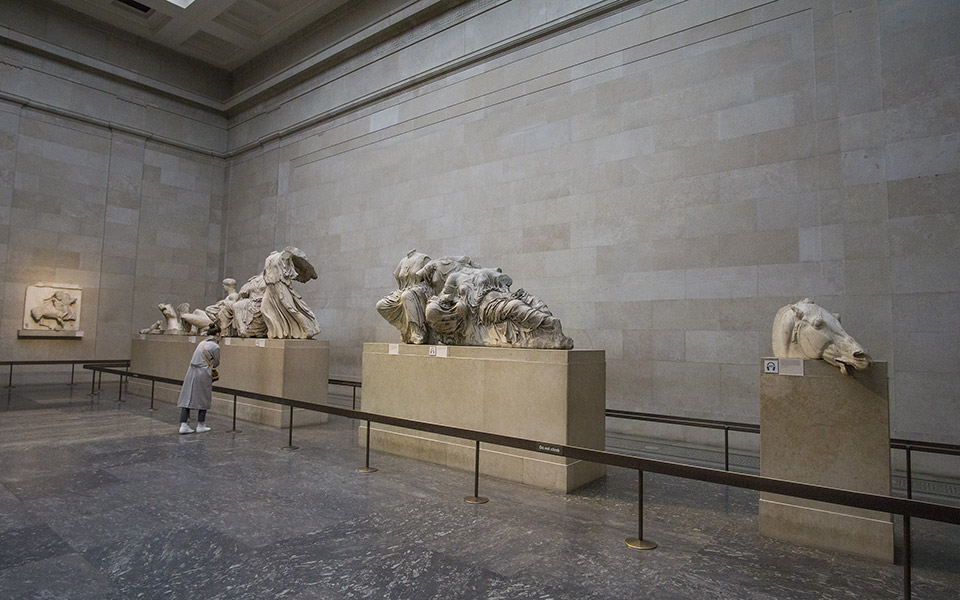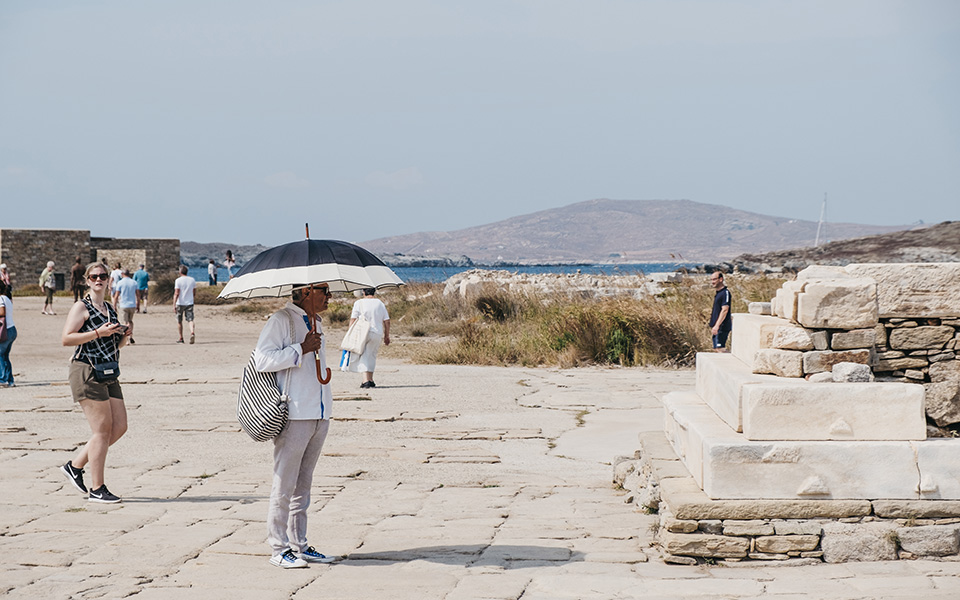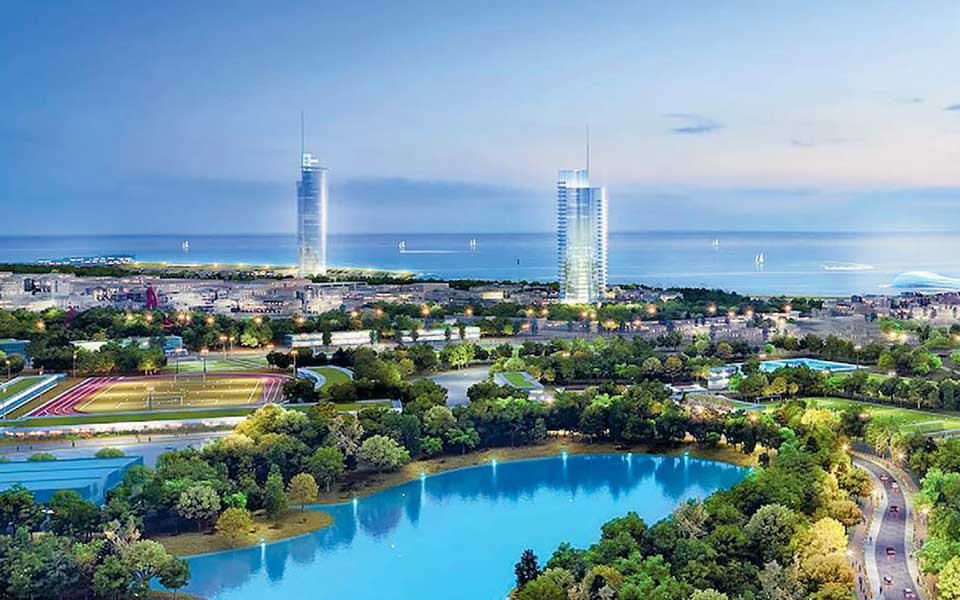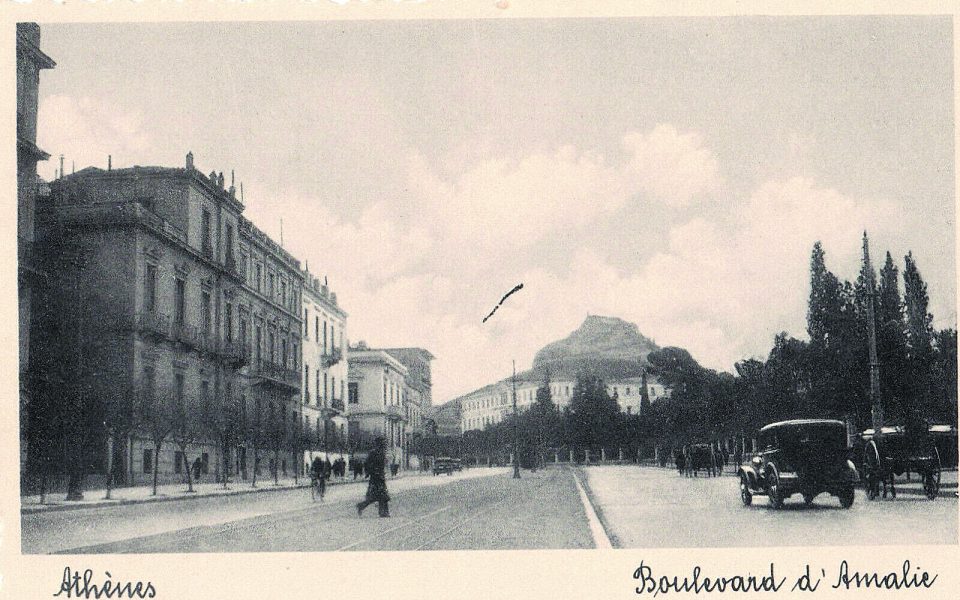When I asked journalist and author Bruce Clark whether there is one thing about Athens that has remained unchanged through time, he immediately answered, “The Acropolis.”
“There were times when Athens hardly existed as a town, but the Acropolis was always important as a strategic stronghold and also as a holy place. Western public opinion slightly overstates the secular democratic function of the Acropolis. In fact, it was always a place of holiness, whether of the ancient Greek religion, the Greek Christian religion or the Roman Catholic religion or Islam. It was always a place where people prayed and sensed a certain spiritual power, not only in the surface of the Acropolis but also in the caves. The entire geological structure has been invested with a holiness, and that is, maybe, the most continuous feature of Athens down the ages.”
The Economist’s international security editor tackles the history of the Greek capital with the same reverence in his new book “Athens: City of Wisdom” (published by Pegasus), which starts long before the construction of the Acropolis in the Classical years, and specifically in the 8th century BC, before ending in the present – with many stops in between.
Our interview, however, started with the obvious question: What makes Athens wise? “The title reflects the fact that wisdom and cleverness was always one of the net exports of Athens. Athens has to import many things – and always has to import food, for example, for its population – but after the decline of Periclean Athens, when Athens lost its geopolitical importance, it didn’t cease to be a very powerful exporter of ideas and rhetorical skill,” explains Clark.

© Shutterstock
Elgin
As the conversation turned to the “commodities” exported by Athens, I ask about another major issue, which he also refers to in his book. Clark dedicates several pages to Britain’s Lord Elgin and his “creative interpretation” of the Ottoman firmans issued during a period of close ties with Britain.
“Even by the standards of the time, what Elgin did was shocking, and it was shocking to British and some Ottoman officials as well. It was an egregious and unusual act, even for a time when rich people in western Europe were taking many things from Greece and the east Mediterranean,” says Clark.
Stressing the British Museum’s role in educating the global public in world history, Clark says he believes the time has come for a decision on the matter of the reunification of the Parthenon Sculptures. “I think the British Museum would do itself a favor if it took a moral position in favor of reunification,” he says, adding that this would also require a legislative act from the British government.
“The official line, both from the British government and from the museum, is that these marbles were legally acquired and the correct procedures were followed, but to me that’s a very insensitive position when set against the really outstandingly selfish and cynical behavior of Elgin and his assistants, if you like.”

© Shutterstock
‘Profound experience’
Clark was born in Northern Ireland and visited Greece several times on family holidays during his childhood. At 13, his father, a passionate sailor, took them on an Aegean tour in a wooden sailboat, but it was Delos that made the most lasting impression. “That was a very profound experience,” he says of that visit.
He learned Ancient Greek at school and spent six months in Athens as a university student, earning money as an English teacher and spending about a month in the student dorms in the suburb of Zografou. Later, when the Reuters news agency was looking for its first Athens correspondent, Clark seemed the obvious choice as the only person on staff who spoke Greek.
‘Formative time’
The longest he spent in the country was from the summer of 1982 to summer 1986. “It was a very formative time,” says the journalist. He followed Socialist Prime Minister Andreas Papandreou closely and listened to his fiery speeches, and as he describes in his book, he met other iconic figures of the era, such as actress and activist Melina Mercouri and politician Antonis Tritsis. In fact, many of these references on the history of Athens (of Greece, essentially) from the 1980s onward are based on his personal opinions, interviews and conversations as a journalist.
“Athens was quite an unhappy and grumpy place in those days. It was, in a way, an urban society that wasn’t fully urban and the city wasn’t functioning very well. It was very polluted. Everyday life was quite stressful. There was a certain bad temper in the air, which Andreas Papandreou, I think, articulated quite effectively. In many ways I find Athens now, for all the tragedies that it’s been through, a much, much happier and in some ways a much more interesting place than it was in the 1980s,” he says, adding that the “enduring wounds” of the economic crisis are nevertheless evident.

© theellinikon.com
New protagonists
Who are the protagonists in this new Athens in the veteran journalist’s mind? The two most famous Athenians on Twitter, he says, Yanis Varoufakis and Giannis Antetokounmpo, though he is more interested in the latter, whose story he describes as “transformative for Athens and inspiring.” Is the young Greek-Nigerian basketball star the face of the Greek capital today? “I hope so,” says Clark.
‘On a knife-edge’
“It seems to be that Athens is in a very fragile state. Whether Athens can absorb, physically and culturally, its 4 million inhabitants seems to me a very finely poised question. And we saw the ecological challenges this year with the fires and then the floods. It seems to me that the future of Athens is on a knife-edge. And you have great regional inequality,” he says.
“You have the terrible rubbish dump in Fyli and the terrible ecological problems of the whole western side of Athens. You have an entirely new reality emerging on the south coast with the Elliniko development. You have more prosperous people moving northwards or eastwards. It seems to me a very real question whether Athens can cohere as a city. But nonetheless, I’m 51% optimistic and I’m always interested by the pragmatism with which cities adapt to new cultural and social realities.”
This article was previously published at ekathimerini.com.












